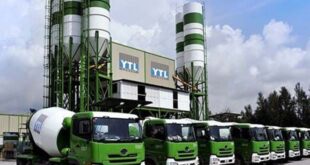OTTAWA: Canada’s strategy to lure electric vehicle (EV) manufacturing is shifting toward financial incentives based on tax credits, and away from the huge production subsidies that were promised to companies including Volkswagen AG in 2023.
But the pace of that transition will be put to the test this year as Prime Minister Justin Trudeau’s government negotiates with at least one other major automaker, Honda Motor Co, over a potential new EV battery plant in Canada.
Last year, Trudeau’s government signed three unprecedented contracts to match production subsidies being offered to companies in the United States. The numbers were big: as much as C$15bil (US$11bil) for Stellantis NV, C$13bil for Volkswagen and C$4.6bil for battery-maker Northvolt AB. Provincial governments in Ontario and Quebec are picking up part of the cost.
But subsidies of this kind will become less central to Canada’s EV manufacturing strategy, the industry minister promises.
Having secured so-called “anchor investments,” Canada is turning its attention to building out a broader EV supply chain, said Industry Minister Francois-Philippe Champagne.
“What we did in 2023 was to seize the moment,” Champagne said in an interview with Bloomberg News.
“There’s only going to be one Volkswagen gigafactory in North America. There’s only going to be one Northvolt factory in North America.”
But he said there’s a difference between what Canada had to do initially to keep pace with the United States, and what it needs to do over the longer term.
“Over time, because the ecosystem is getting stronger and stronger with each of these investments, you could transition the type of support you’ve provided more to something akin to a tax credit,” Champagne said.
The battery plant deals were highly unusual for Canada because in order to match the US Inflation Reduction Act, they subsidise the actual production of the factories – essentially offering money for each battery the plant makes.
They were a departure from Canada’s usual practice of offering money to auto companies for capital spending projects – though last year’s subsidy packages included those, too.
The price tags of the subsidies have been criticised by some, especially with signs consumer demand for EVs is flagging. In Germany, for example, EV sales are expected to decline in 2024.
Yet those deals have also boosted Canada’s global standing in the industry, with BloombergNEF now ranking Canada in first place in battery supply chain manufacturing, surpassing China.
Going forward, Canada plans to offer manufacturers tax credits, unveiled in last year’s budget. They have yet to be finalised, but include a “clean technology manufacturing” credit that would equal 30% of the capital cost of eligible property. — Bloomberg
 BeritaKini.biz Berita Viral Terkini di Malaysia
BeritaKini.biz Berita Viral Terkini di Malaysia




